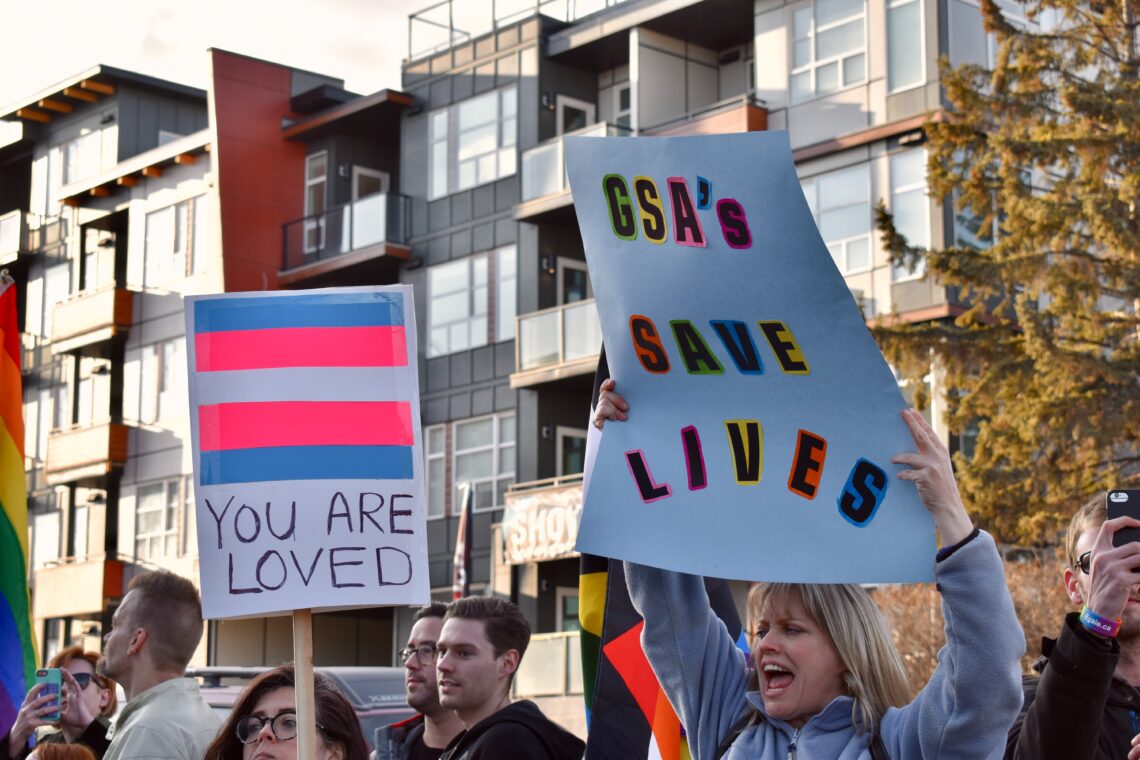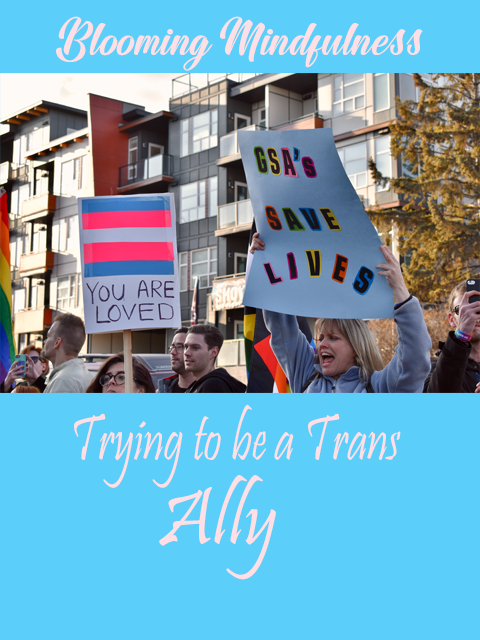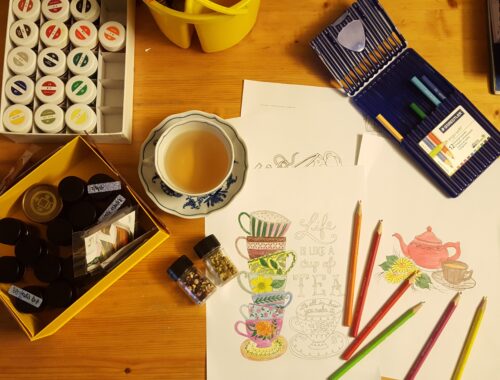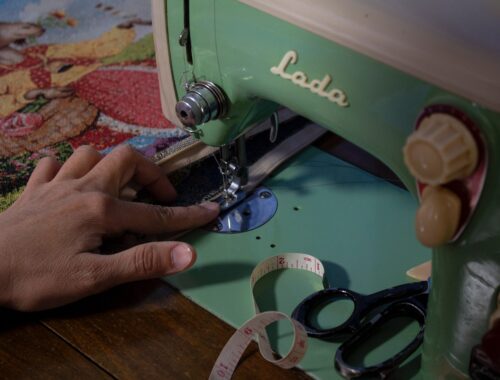
Trying to be a Trans ally
This post is a collaboration with my friend Artie over at artiecarden.com and don’t forget to check out their You Tube channel as well.

Trying to be a trans ally is not easy, it can be scary and leave you feeling overwhelmed with the language and uncertainty of what to say. However, when you put that against how they feel facing the world, it is so worth trying.
You might read todays blog post and think it is different to my usual content, but is it really? I often speak about mental health, and after reading the Stonewall trans key stats talking about being an ally is needed more than ever.
This blog post is a collab, and Artie is younger than me and wow I have learned so much from them. Most of all they taught me about language and how easily I can hurt someone without intending to, like when I accidentally mis-gendered them.
As an ally you will make mistakes, you will say the wrong thing, or speak up when not needed. But so long as you ask questions, and are open to being corrected and then willing to go away and learn more yourself you will not go far wrong. Don’t let your ego get in the way, just take a breath and apologise and learn from it and you will do great.
I think to be honest, getting things wrong and unintentionally hurting someone can be the biggest step to get over. But if that person is angry, or upset remember they have probably dealt with a lot of hate and anger towards them for a long time.
Taking it personally will get you nowhere, as white, CIS people I know we are used to the world being set up for us. We don’t know how it feels to have people against you, and it is easy to feel like they should just be grateful we are standing up for them.
Language and being an ally:
I was recently watching a video by Finn Games, called Was I born in the wrong body? This is a term I have heard a lot and yet never understood because my personal spiritual view is that we make soul contracts before coming to this life. In this video, he spoke about how language is always changing, something that was right twenty years ago when you learned it might not be right now.
One example of this was when on twitter someone had made a post about being bisexual. This confused me because they were speaking as if they were attracted to more than two genders. I learned that bisexual meant attracted to two genders, and pansexual meant attracted to all genders.
I was wrong, language has moved on and now the meanings have somewhat blurred. So pay attention, listen and be willing to change your understanding and the language you use. This is difficult as an ally, if you are not part of a group of people then how do you keep up? The answer is you can’t, but you can be open to learning and listening.
Trans women / trans men with the space are okay. Transwomen/ transmen without the space is not. It’s very othering. Nonbinary and non-binary are fine. Enby is only if you know the person and they have said it is okay you refer to them this way, but never refer to the whole community or strangers as enbies NB is not short hand for nonbinary the BIPOC community already have claim of this term for non-black and it’s important we don’t co-opt their language!
– Artie Carden
Questions about being a Trans ally:
So in order to get some answers to things I have often thought about I spoke to Artie:
- How is it best to ask someone’s pronoun without drawing attention, or is it best to use something general with everyone? Something that is generally understood among trans people is trying to normalise asking peoples pronouns generally. I understand it can be risky to do this if you aren’t in a queer space, but if you are in some kind of LGBTQ+ inclusive space, when you introduce yourself, give your pronouns first. This will normally have a response that includes the other person’s pronouns, and if not, I think it is fair enough to just ask “what are your pronouns, I think I missed that” etc. but offering your pronouns first is key. Also not calling pronouns ‘preferred pronouns’ as a cis person.
- When trying to be a trans ally, how important is it to be humble and realise you will make mistakes? This is probably the most important thing! Cis people often enter trans spaces, asking questions that may not be well phrased or naive, and get defensive when it is pointed out and explained why what was said wasn’t good, and how to adjust speech for next time. I’m in a facebook group for people to be able to ask questions and learn, but there are times when people are adamant what they have said isn’t offensive or are more bothered by the idea they aren’t being seen as an ally. For a start, calling yourself an ally give me a mental warning, because you shouldn’t be announcing that you are an ally to a marginalised group because you are not part of the group. For example, as a white person, I say “I do my best to be an ally to BIPOC” or avoid ally altogether and say “I do what I can to support the BIPOC community” because I know I am not perfect and my abilities and understandings are limited. Part of being an ally is being aware you will make mistakes, but for the most part, it is better to try to do what is right and take the feedback you get. There is no set of rules that fit everyone, so a lot of things need to be adjusted based on the situation you are in.
- Are there any books you recommend for learning more about Trans experience, by Trans people? Trans Britain: our journey from the shadows by Christine Burns Queer: a graphic history by Meg-John Barker Fierce femmes and notorious liars by Kai Cheng Thom Nonbinary: memoirs of gender and identity by Micah Rajunov Gender identity, sexuality and autism: voices from across the spectrum by Eva A. Mendes Transgressive: a trans woman on gender, feminism and politics by Rachel Anne Williams Trans voices: becoming who you are by Declan Henry Transition denied: confronting the crisis on trans healthcare by Jane Fae Trans power: own your gender by Juno Roche Nonbinary lives: an anthology of intersecting identities by Jos Twist Gender queer by Maia Kobabe Uncomfortable labels: my life as a gay autistic trans woman by Laura Kate Dale Ciel by Sophie Labelle (a childrens book i believe)
I really hope that by posting this you can start thinking about trying to become a trans ally. People in marginalised groups are tired of always standing up and arguing their own existence and I know how that feels. I am a disability advocate I stand up here on my blog and my you tube to try and educate. It can be so tiring so when someone who is able bodied stands up for us, it means so much.
Be the good you want to see in the world
Namaste xxxx
*contains affiliate links



